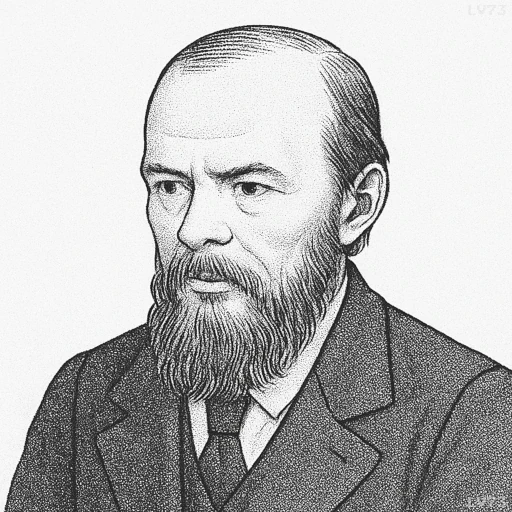“Man, so long as he remains free, has no more constant and agonizing anxiety than find as quickly as possible someone to worship.”

- November 11, 1821 – February 9, 1881
- Born in the Russian Empire
- Novelist, philosopher
table of contents
Quote
“Man, so long as he remains free, has no more constant and agonizing anxiety than find as quickly as possible someone to worship.”
Explanation
Dostoevsky’s quote reflects the existential struggle of the human condition when faced with freedom and the absence of absolute meaning. For Dostoevsky, the freedom of modern individuals—especially in the context of a world where traditional religious and moral frameworks were breaking down—brings with it an intense anxiety. This anxiety arises from the overwhelming responsibility of having to define one’s own life, make choices, and seek purpose without relying on a higher authority or prescribed set of beliefs. Worship, in this sense, becomes a means of anchoring oneself in a chaotic world, providing structure, meaning, and security.
Dostoevsky suggests that, in the absence of clear direction or meaning, people feel an urgent need to find something to believe in—something worthy of their devotion. This can manifest as a desire for a god, a leader, or even an ideology to follow. Without a guiding principle, individuals experience moral disorientation and an internal conflict between the desire for autonomy and the need for external validation. In many of Dostoevsky’s works, characters wrestle with this tension. For instance, in The Brothers Karamazov, Ivan Karamazov’s struggle with faith is deeply tied to his search for a higher moral authority in a world of suffering and injustice.
In the modern world, this quote resonates with the search for meaning in an age marked by secularism, individualism, and pluralism. As societies move away from traditional religious structures, many people face a profound existential void. In the absence of clear spiritual or moral direction, individuals may turn to alternative sources of worship—whether that be political ideologies, celebrity culture, or material success. The anxiety Dostoevsky refers to is seen in today’s obsession with leadership, charismatic figures, and the search for ideological certainty. Whether through the cult of personality or the rise of political movements, people often seek someone or something to worship, believing that this will give their lives the meaning and purpose they crave. The quote serves as a reminder that freedom, while empowering, also comes with the weight of responsibility in deciding where to place one’s faith and how to live in a world without guaranteed answers.
Would you like to share your impressions or related stories about this quote in the comments section?

